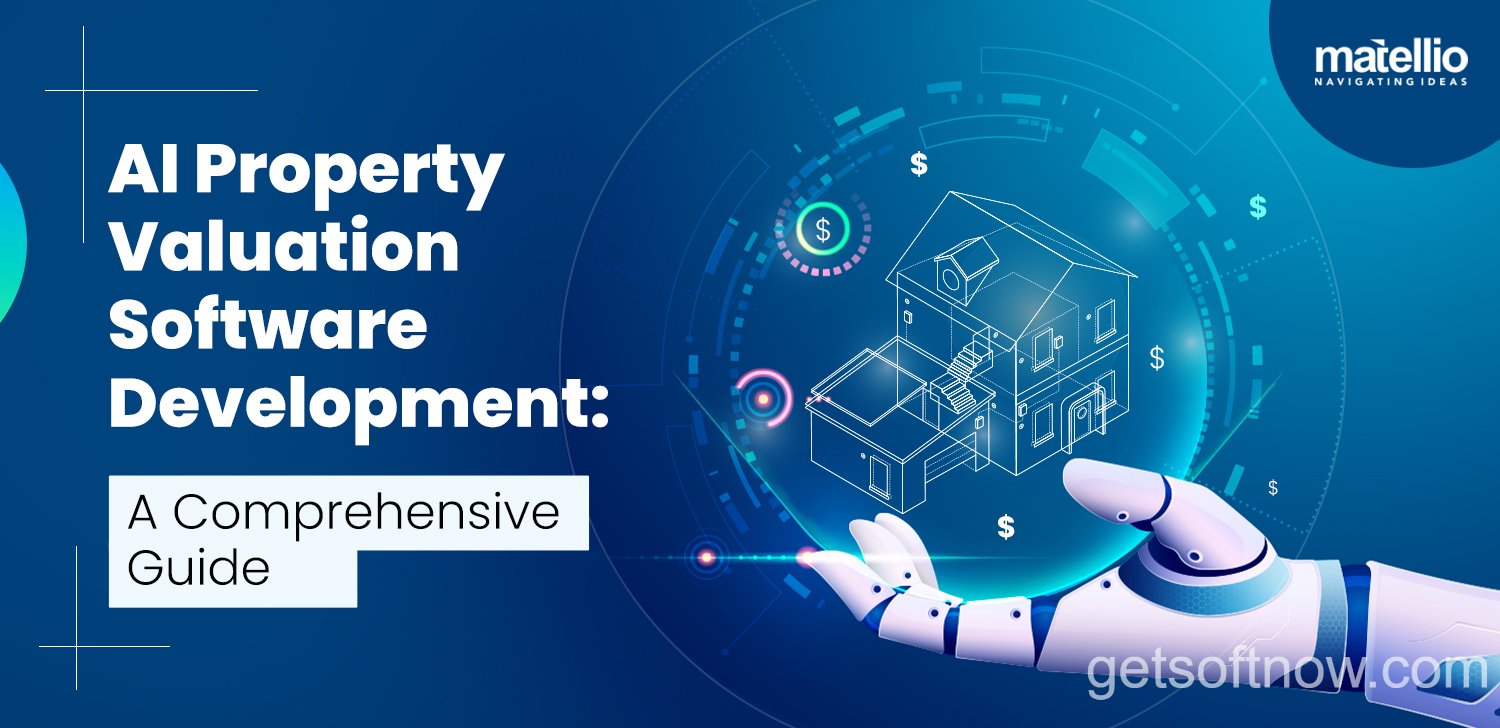The real estate industry has long been a cornerstone of economic growth and stability, but it has also faced numerous challenges, from market fluctuations to inefficient processes and data overload. However, the advent of artificial intelligence (AI) software has ushered in a new era of innovation, promising to transform the way real estate professionals and investors operate.
What is Real Estate AI Software?
Real estate AI software is a suite of intelligent tools and applications that leverage the power of machine learning, natural language processing, and advanced algorithms to automate tasks, generate insights, and optimize decision-making processes within the real estate industry.
These cutting-edge solutions are designed to tackle a wide range of challenges, from property valuations and lead generation to customer engagement and predictive analytics. By harnessing the vast amounts of data available, AI software can uncover patterns, trends, and relationships that would be nearly impossible for humans to discern manually.
Property Valuations
One of the most significant applications of AI software in real estate is property valuation. Traditional valuation methods often rely on subjective assessments and can be influenced by human biases. AI-powered valuation tools, on the other hand, employ sophisticated algorithms and machine learning models to analyze vast datasets, including historical sales data, market trends, property attributes, and location-specific factors.

By processing this information in real-time, these tools can provide accurate and data-driven valuations, ensuring that real estate professionals and investors have access to reliable insights when making critical decisions.
Lead Generation and Nurturing
Another critical aspect of real estate is lead generation and nurturing. AI-driven lead generation systems can analyze vast amounts of data, including online behavior, demographic information, and market trends, to identify and target potential buyers and sellers with pinpoint accuracy.

Once leads are identified, AI-powered nurturing platforms can engage with them through personalized and tailored interactions, such as targeted email campaigns, chatbots, and virtual assistants. This not only improves the chances of conversion but also enhances the overall customer experience, fostering long-term relationships and loyalty.
Benefits of Real Estate AI Software
The adoption of AI software in the real estate industry offers numerous benefits, ranging from increased efficiency and improved decision-making to enhanced customer experience.
Increased Efficiency
One of the primary advantages of AI software is its ability to automate repetitive and time-consuming tasks. By leveraging machine learning algorithms and natural language processing, these tools can streamline processes such as data entry, document processing, and lead qualification, freeing up valuable time for real estate professionals to focus on higher-value activities.
This increased efficiency not only boosts productivity but also reduces the risk of human error, ensuring greater accuracy and consistency throughout various real estate operations.
Improved Decision-Making
Real estate decisions often involve complex variables and significant financial implications. AI software empowers real estate professionals and investors with data-driven insights and predictive analytics, enabling them to make informed decisions based on comprehensive and objective data analysis.
By identifying patterns, trends, and correlations that may not be immediately apparent to humans, AI software can provide valuable foresight into market dynamics, risk assessments, and investment opportunities, ultimately leading to more informed and strategic decision-making.
Enhanced Customer Experience
In an industry where customer experience is paramount, AI software offers a competitive edge by enabling personalized and tailored interactions. Chatbots and virtual assistants powered by natural language processing can engage with clients 24/7, answering queries, providing recommendations, and guiding them through the real estate journey seamlessly.

Additionally, AI-driven personalization can tailor marketing content, property recommendations, and communication strategies to align with individual preferences and behaviors, fostering stronger connections and improving overall customer satisfaction.
Top Real Estate AI Software Solutions
As the demand for AI solutions in the real estate industry continues to grow, numerous software providers have emerged, offering a wide range of AI-powered tools and platforms. Here are some of the top real estate AI software solutions worth exploring:
Property Valuation Tools
- Zillow’s Zestimate: A widely recognized AI-powered property valuation tool that provides estimated home values based on a variety of factors, including location, size, and recent sales data.
- HousingAlpha: An AI-driven platform that offers real-time property valuations, market insights, and investment analysis for residential and commercial properties.
- Nest Report: An AI-based tool that generates comprehensive property reports, including valuations, rental estimates, and market analysis, to aid real estate professionals and investors in decision-making.
Lead Generation and Nurturing Platforms
- RealScout: An AI-powered lead generation and nurturing platform that uses predictive analytics to identify and engage potential buyers and sellers at the right time.
- SmartZip: A data-driven lead generation and nurturing solution that leverages AI and machine learning to identify and target high-intent homebuyers and sellers.
- FollowUpBoss: An AI-driven lead nurturing platform that automates follow-ups, personalizes communication, and provides real-time insights to help real estate professionals stay on top of their leads.
Virtual Assistants and Chatbots
Virtual assistants and chatbots have become increasingly popular in the real estate industry, providing 24/7 support and personalized interactions for clients and prospects.

Solutions like Rev.ai, Structionsite, and Ariva offer AI-powered virtual assistants and chatbots tailored specifically for the real estate industry, helping to streamline communication, answer queries, and provide personalized recommendations.
Predictive Analytics and Forecasting Tools
Predictive analytics and forecasting tools are essential for real estate professionals and investors to stay ahead of market trends and make informed decisions. AI-driven solutions like LocationSpartan, SpatialKey, and SmartZip Analytics leverage machine learning algorithms and data analysis to provide accurate market forecasts, identify investment opportunities, and assess risk factors.
By leveraging these AI-powered tools, real estate professionals and investors can gain a competitive edge, stay ahead of market trends, and make data-driven decisions that maximize their returns and mitigate potential risks.
Implementing Real Estate AI Software
While the benefits of AI software in the real estate industry are clear, successful implementation requires careful planning and consideration. Here are some key factors to keep in mind when adopting AI solutions:
Integration with Existing Systems
One of the primary challenges in implementing AI software is ensuring seamless integration with existing systems and tools used by real estate professionals and organizations. This includes customer relationship management (CRM) platforms, databases, and other software solutions already in place.
AI software providers often offer integration capabilities through application programming interfaces (APIs) or dedicated connectors. However, it’s crucial to work closely with vendors and IT teams to ensure data consistency, compatibility, and smooth information flow across all systems.
Training and Adoption
The successful adoption of AI software hinges on effective training and change management strategies. Real estate professionals may initially be hesitant or skeptical about embracing new technologies, especially those involving complex algorithms and automation.
“AI is not a threat to real estate professionals; it’s an opportunity to enhance their capabilities and deliver better services to clients.” – Forbes Technology Council
To overcome this resistance, organizations should prioritize comprehensive training programs that clearly demonstrate the value and benefits of AI software. Additionally, identifying and empowering internal champions who can advocate for the technology and provide support to their colleagues can significantly enhance user adoption.
Data Privacy and Security Considerations
Real estate transactions often involve sensitive personal and financial information, making data privacy and security paramount concerns when implementing AI software. Organizations must ensure that their AI solutions comply with relevant data protection regulations, such as the General Data Protection Regulation (GDPR) and industry-specific standards.
This may involve implementing robust cybersecurity measures, data encryption protocols, and access control mechanisms. Additionally, transparency about data collection, usage, and storage practices is crucial to building trust and maintaining customer confidence.
The Future of Real Estate AI Software
As AI technology continues to evolve, the real estate industry can expect even more transformative changes and innovations in the coming years. Here are some emerging trends and future possibilities:
- Intelligent Virtual Agents: AI-powered virtual agents and assistants will become increasingly advanced, capable of understanding natural language, interpreting context, and providing personalized recommendations and support throughout the entire real estate journey.
- Augmented and Virtual Reality: The integration of augmented reality (AR) and virtual reality (VR) with AI software will revolutionize property viewings and marketing. Potential buyers and investors can immerse themselves in realistic, AI-generated virtual tours and visualizations, enhancing the decision-making process.
- Predictive Maintenance and Smart Buildings: AI software will play a crucial role in predictive maintenance and the management of smart buildings. By analyzing data from sensors and IoT devices, AI algorithms can predict and prevent equipment failures, optimize energy usage, and enhance overall building efficiency.
- Blockchain Integration: The integration of blockchain technology with AI software can bring increased transparency, security, and trust to real estate transactions. Smart contracts and decentralized data storage solutions can streamline processes and reduce the need for intermediaries.

While these advancements hold immense potential, they also present challenges in terms of ethical considerations, data governance, and regulatory compliance. As AI software continues to shape the real estate landscape, industry leaders and policymakers must work together to ensure responsible and equitable development and implementation.
Frequently Asked Questions
Can AI software replace real estate professionals?
No, AI software is not designed to replace real estate professionals entirely. Instead, it serves as a powerful tool to augment their capabilities, enhance decision-making, and streamline processes. The human element, including expertise, negotiation skills, and personalized client interactions, remains crucial in the real estate industry.
How accurate are AI-powered property valuations?
The accuracy of AI-powered property valuations largely depends on the quality and quantity of data used to train the algorithms. While these valuations are generally more precise and data-driven than traditional methods, they should be complemented by expert appraisals and local market knowledge for the most reliable assessments.
Is my data safe when using real estate AI software?
Reputable AI software providers prioritize data privacy and security by implementing industry-standard encryption protocols, access controls, and compliance with relevant data protection regulations. However, it’s essential to review the vendor’s data handling practices and security measures before adopting their solutions.
How much does real estate AI software cost?
The cost of real estate AI software can vary significantly depending on the vendor, features, and scale of implementation. Some solutions offer subscription-based pricing models, while others charge based on usage or transaction volume. It’s advisable to carefully evaluate your needs and budget before selecting a solution.
Conclusion
The integration of AI software into the real estate industry is no longer a distant possibility but a present reality. From property valuations and lead generation to customer engagement and predictive analytics, AI-powered solutions are revolutionizing the way real estate professionals and investors operate.
By leveraging the power of machine learning, natural language processing, and advanced algorithms, these cutting-edge tools offer increased efficiency, improved decision-making, and enhanced customer experiences. As the industry continues to embrace digital transformation, those who adopt AI software early will gain a significant competitive advantage.
However, successful implementation requires a strategic approach, including seamless integration with existing systems, comprehensive training and change management, and a strong commitment to data privacy and security.
As the future unfolds, we can expect even more innovative applications of AI in real estate, from intelligent virtual agents to augmented and virtual reality experiences. While these advancements bring excitement and opportunity, they also call for responsible development and ethical considerations.
Ultimately, the real estate industry stands at the cusp of a transformative era, and AI software will play a pivotal role in shaping its future. Embrace this technology, Stay informed, and seize the opportunity to revolutionize your real estate endeavors with the power of AI.

Leave a Reply